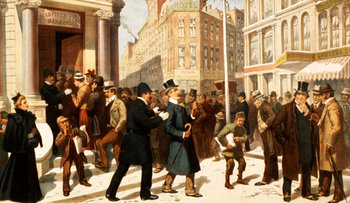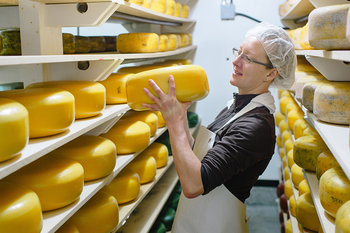
Financial Markets
Large scale platforms of financial exchange such as stock, bond, derivatives, commodity and money markets.Over-the-Counter
A market that is conducted by a dealer network. Typically involves some level of human negotiation. Many financial markets are over-the-counter including major bond markets.Reinsurance
A market for insurance companies to buy insurance. A method of transferring risk.Crowdfunding
Platforms that allow people to pitch projects, ventures and causes to a community to raise funds. A potential challenge to traditional methods of finance.Farmer's Markets
Physical locations that are used to sell agricultural products directly to consumers.Wholesale Markets
Electronic platforms and physical locations for selling to businesses such as retailers, restaurants and distributors.Trade Fairs
Industry events that are open to industry insiders and/or the public. In many cases, trade fairs are essentially marketing events but are also important to closing business-to-business sales.Events
The market for event tickets.Digital Assets
Markets for digital assets such as domain names.Platform Markets
A market for products and services related to a technology platform. For example, an app market for a type of mobile device.Ecommerce
A general term for an electronic exchange of products and services.Auctions
A market based on competitive bidding.Reuse
Markets for used items such as cars, industrial equipment or vintage clothing.Art
The market for art as an investment or for the enjoyment of the buyer. Art is an unusual market as it can be difficult to value with some items considered "priceless."Collectables
The market for antiques and other collectables such as limited edition pop culture items.Advertising
The market for people's attention.Job Market
Platforms and agents who connect workers and employers.Real Estate Market
The market for real estate typically involves agents representing both buyers and sellers.Social
Two-sided markets that connect people for social purposes such as dating.| Overview: Markets | ||
Type | ||
Definition | A platform, system or forum of exchange that connects two sides with complementary needs. | |
Related Concepts | Financial MarketAttention EconomicsAgentsBusiness ModelsTwo-sided Markets | |



































